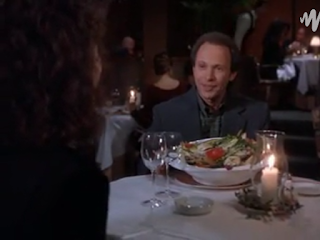Whale Rider
Plot
This film touches on the
troubled times of when the Maori tribe faces many social issues as they look
for a new leader to lead them out of the darkness.
Cognitive Dissonance
One of the recurring
psychological phenomenon throughout the movie is Cognitive Dissonance, and we
can clearly see it in the Apirana family. Cognitive dissonance is when there is
conflict of two opposing views in the mind, both being present at the same time.
It is easier to see it happening when someone has a specific belief or attitude
about something or someone, but behaves differently.
Porourangi Apirana
It can be seen that
Porourangi loves his family and his tribe, but he does not stay and lead his
people. We can see loving and affectionate moments between Porourangi with his
parents and daughter, it was portrayed that their bond goes deep and they
really do care about each other.
He loves his father, but
at the same time, he also despises how desperate he wanted an heir to save his
people. Koro came off as being cold and unsympathetic towards the death of his wife and son as he tells him to “try again” and I can imagine the amount of stress and hope that Koro has placed on Porourangi’s shoulders.
We also see that
Porourangi loves his Maori tradition and art, and keeps his roots close to
heart.
Though after the death
of his wife and son, he decided to leave Whangara and goes around the world to
showcase Maori art instead of staying and taking over the role of being the
leader of his people. He came home with a slideshow of his work to show his family.
He also left his boat
half done as he travels and creates at the same time. Maybe he used his current work as an
escapism for the conflicts that he is facing at that point of time, with his
father and also with his love for his people.
Paikea (Pai)
When presented a choice
to stay or go off with her father, she is also conflicted because she loves all
of her family and culture. She loves her father,
and wishes to go off with him after Koro told Porourangi to take her away. She felt hurt, but at
the same time, she still loves Koro.
When she was leaving
with her father, as they travel through the lands of Whangara, Pai saw the
ancient whale that once belonged to her ancestor of the same name as her,
Paikea, and she decided to stay.
Now she faces the inner
conflict of leading her people and respecting her grandfather’s dedication to
tradition. Deep down in her heart there is this calling, to be the next person
who leads her tribe, but according to tradition, the leader has to be a male,
and Koro follows the ways of the past very strictly. Koro didn’t prohibit Pai from coming to the school for boys, but he has many restrictions on things that she can or cannot do. Some completely sexist.


Koro prohibits Pai from learning how to use the taiaha, but she learns it in secrecy despite her love and respect for Koro.


Koro prohibits Pai from learning how to use the taiaha, but she learns it in secrecy despite her love and respect for Koro.
Koro
Now Koro is a very
complicated character who we know is loving and kind, but he too often stresses
himself out and often robs himself of his own happiness, he doesn’t express
himself much and bottles many things up. I guess that’s what it means to “be a man”?
He loves his son, and
eagerly wishes for him to have an heir at the same time. When Porourangi’s wife
and son passed away, he was heartbroken. He projects his emotions on to his
son, and tells him that it’s okay, and he can try again.
At the same time, he
puts a lot of hope and expectations on his son’s shoulders, and when he does
not get the result he wished for, he robs himself and others of happiness.
In the beginning, he
wished that Paikea had never been born, but he changed his mind. He loves Paikea, but
also doesn’t really show it. Deep down, he still has some conflict about not
having a grandson as an heir to the family bloodline, but having a lovely
granddaughter that he loves.
He loves her, but at the
same time denies her of the chance and opportunity to lead the tribe because
the leader HAS TO BE male. This belief is one that hurts him and Pai the most,
causing the most conflict and anguish within Koro himself.
At the end of the movie when Pai rides on the back of the original Paikea's Whale, Koro finally let go of his belief that the new leader has to be male, and realized that Pai was meant to be the next leader all along.
At the end of the movie when Pai rides on the back of the original Paikea's Whale, Koro finally let go of his belief that the new leader has to be male, and realized that Pai was meant to be the next leader all along.
























































